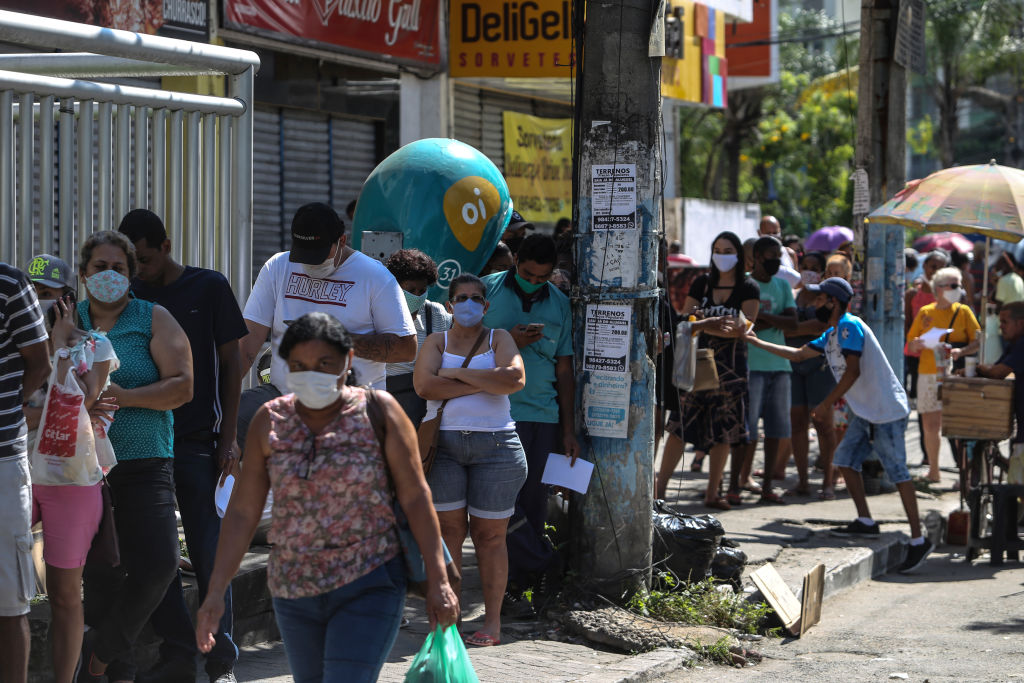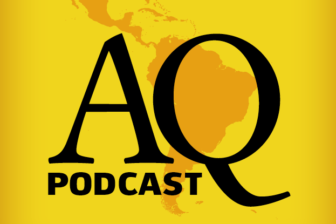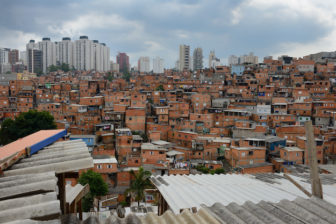Latin America is on its knees. The COVID-19 crisis has dealt the final blow to a region already weakened by a half decade of sluggish growth, complex political crises and transitions, and a renewed increase in poverty and inequalities. It is now the epicenter of the pandemic, with deaths set to substantially worsen in the coming weeks, as a reflection of the erratic policy decisions in the face of the epidemic adopted by some countries and the poor healthcare systems that several of them have.
This scenario indicates a bleak future, but Latin America can return, of course, to the path of growth, employment, and improvement in social conditions. But this implies a significant increase of fiscal resources allocated not only to healthcare, but to income transfers for the poor and vulnerable, support for employment and businesses – especially the smaller ones, hard hit by the crisis – and infrastructure and development projects. A key barrier is the generally weak level of tax revenue obtained by Latin American countries. In 2018, the average tax revenues in the region were 23.1% of GDP, compared to 34.3% among OECD countries.
Worried about external debt and capital flight, several Latin American governments are terrified about increasing their spending by large amounts, and some are even adopting fiscal austerity. The already limited fiscal space is narrower today than when the Global Financial Crisis hit the region, as countries were running up higher fiscal deficits and were more indebted in recent years than in 2008. But let’s be clear: austerity is not an option.
It’s really about answering one question: beyond the financing to manage the crisis, who will pay the bill? What is clear is that this burden cannot fall on the most fragile populations. One of the problems is the lack of income tax regimes with significant redistributive effects, which makes the region depend heavily on regressive value added tax revenues. Another problem is, as in the rest of the world, that the richest people and multinationals are champions of tax evasion and avoidance strategies that represent each year losses of at least $340 billion, the equivalent of 6.7% of Latin America’s gross domestic product (GDP).
A major reason for this scandal is an outdated and unfair international tax system that allows multinationals to declare their profits wherever they want, to pay low or no taxes. The Independent Commission for the Reform of International Corporate Taxation, ICRICT, which I chair, has been making for several years proposals to overhaul this entire system that allows big multinationals to pay less taxes than small and medium businesses, thereby distorting the economy and job creation.
The already obvious dysfunctions have been aggravated by the digitalization of the economy, because it makes it very hard to determine where production takes place. Ironically, digital giants have also been the big winners of the COVID-19 crisis, since they don’t require face-to-face personal interaction. Amazon founder and CEO Jeff Bezos, for example, has seen his net worth grow 30.6% over the past two months boosting it to $147.6 billion.
This is why Latin American countries should follow in the footsteps of India, the UK, and France, among others, in introducing progressive digital service taxes to capture the profits earned by digital businesses in the countries where their customers are located. In fact, this is one of the five main measures proposed by ICRICT to governments in our latest report in response to the pandemic. There are winds of change in the region in that regard: the Brazilian Congress is currently considering introducing a tax on digital services to companies with global revenues above 3 billion reais ($565,000) and with more than 100 million reais in the country.
One of the main shortcomings of development strategies in Latin America has been the widespread granting of tax incentives with the idea that they are essential to ensure investment, innovation, and quality jobs. However, studies show that they have a limited effect on real investment, which depends much more on a skilled workforce, the quantity and quality of infrastructure, and political stability.
This is why ICRICT also supports the proposal for the introduction of a global minimum effective corporate tax rate of 25%. Any multinational that books its profits in a tax haven would therefore be taxed in its home country up to this minimum rate. This would reduce its interest in transferring its profits to tax havens. It would also deliver precious revenue to Latin American countries, which are more dependent on corporate taxes than developed ones, as corporate tax represents 15% of total tax revenues in Latin America, compared to 9% in OECD countries.
Finally, much of the tax avoidance by multinationals has been facilitated by its lack of transparency. That’s why countries should publish data on offshore wealth to enable all jurisdictions to adopt effective progressive wealth taxes on their residents. For the same reason, governments should require companies to declare in which countries they do business and report profits –“country-by-country reporting”, according to the OECD Base Erosion and Profit Shifting (BEPS) rules.
This is why ICRICT also proposes that only transparent companies will be entitled to state rescue plans in the face of the crisis. Following the initiative that emerged in countries such as Denmark and France, Argentina –which is also exploring a solidarity tax on large fortunes to finance economic recovery— has already introduced some limitations to ban tax dodging companies being bailed out.
The COVID-19 crisis has raised the specter of another “lost decade” in what is already one of the world’s most unequal regions, especially if political leaders opt for a “business as usual attitude”, alternating between austerity plans and making the poorest pay. There are alternatives. There is no more time to lose.
—
José Antonio Ocampo is Professor at Columbia University, and Chair of the Independent Commission for the Reform of International Corporate Taxation (ICRICT). He is also former Finance Minister of Colombia and Executive Secretary of the UN Economic Commission for Latin America and the Caribbean (ECLAC).








